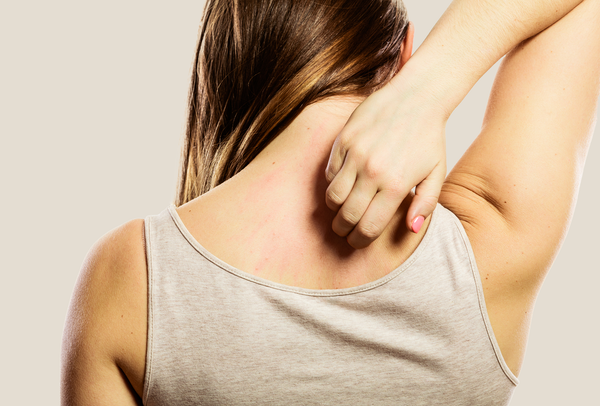Harvard-trained dermatologist Dr. Iris Rubin created SEEN after personally noticing a link between hair care and breakouts. Since acne is the most common skin condition in the United States,[1] she knew there was a need for non-comedogenic, non-irritating shampoos, conditioners, and styling products since these all come in contact with the skin as well as the hair, both in the shower and out. Research has shown that hair product residue can linger on the skin for two hours after rinsing shampoo and conditioner, and up to four hours after applying leave-in styling products.[2] And acne is not the only skin condition that can be aggravated by these products.
It’s important to note that all of SEEN’s products are non-medicated. However, SEEN is clinically proven to be non-comedogenic, which means it won’t cause clogged pores that can contribute to breakouts. SEEN is also non-irritating, which is a big plus for anyone whose scalp or skin is irritated or inflamed due to seborrheic dermatitis, psoriasis, or eczema. All SEEN products are also available without fragrance, which can act as an additional irritant or allergen.
Seborrheic dermatitis
Commonly known as dandruff, the exact cause of seborrheic dermatitis is unknown but factors such as yeast, increased oil, and more are believed to play a role. Flaking gets most of the attention in terms of symptoms, but seborrheic dermatitis also causes itching along with visible redness and irritation of the scalp that can extend to the face and ears as well.
For the record, there is a difference between seborrheic dermatitis and “dry scalp,” which is why it’s best to consult a dermatologist if you’re unsure which you are experiencing. Medicated shampoos are the most common treatment for seborrheic dermatitis, but these products will not improve a dry, itchy scalp (although SEEN can).
Eczema
There are several types of eczema, including atopic dermatitis, contact (allergic) dermatitis, and irritant dermatitis. Yet despite the type, eczema generally begins with itching followed by a red rash that eventually leaves the skin looking dry and scaly. Irritants and allergens like soap, detergents, extreme hot or cold, scratchy fabrics, and other triggers can cause eczema to flare up, and this skin condition has been linked to a weakened skin barrier as well. Harsh surfactant ingredients found in many shampoos and soaps strip both the hair and skin of the essential moisture the skin’s barrier needs to do its job, which is why gentle, non-irritating personal care products, including hair products, can help keep eczema-prone skin looking and feeling its best.
Psoriasis
Psoriasis also causes scaling and itching on the scalp and skin, but this genetic, immune-related skin condition is primarily characterized by raised, red patches of skin covered in silvery scales. Though most common on the scalp, elbows, and knees, psoriasis can cover larger areas of the body as well. Every time you shampoo and condition, a variety of potentially irritating ingredients come in contact with active psoriasis (unless you use non-irritating hair care products). Since there are several types of psoriasis with varying symptoms, it’s best to seek the help of a dermatologist who can help find the ideal treatment approach.
How SEEN can help
Just like the skin on the body can get dry and itchy, so can the skin on your scalp. In a clinical study of subjects with a dry scalp, 93% saw improvement in scalp flaking (based on dermatologist grading) after using SEEN shampoo and conditioner for 4 weeks. And because all SEEN products are also clinically proven to be non-irritating and available fragrance-free, they’re a safe option for people who experience the above skin conditions—and a smart idea even for those who don’t. SEEN can help maintain healthy skin by avoiding potentially pore-clogging and irritating ingredients that could pose an issue down the line.
[1] American Academy of Dermatology
[2] Source: TRI Princeton, March 2019 study using top-selling hair products in U.S. salons based on Kline PRO database Q1-Q3 2018




